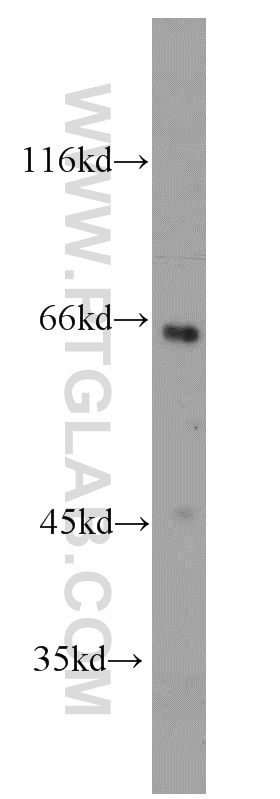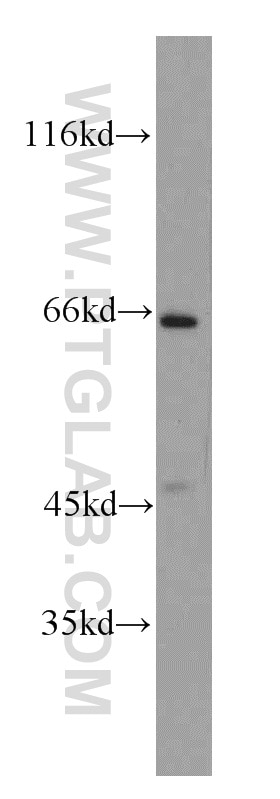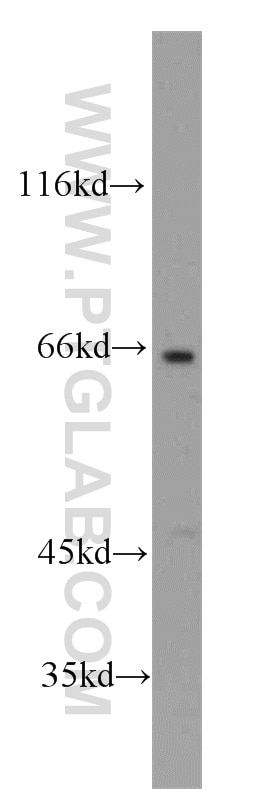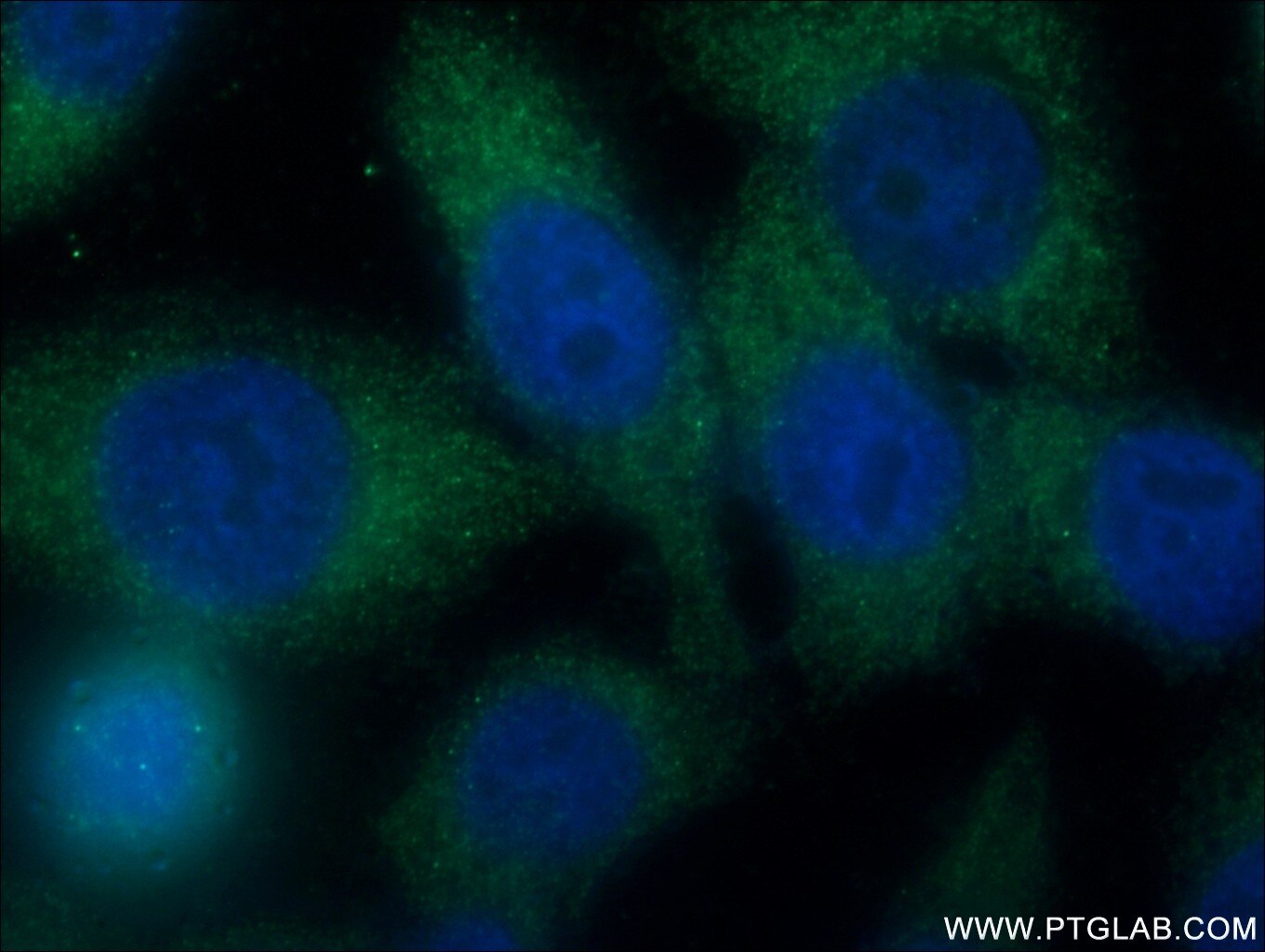SH2D3A Polyklonaler Antikörper
SH2D3A Polyklonal Antikörper für IF, WB,ELISA
Wirt / Isotyp
Kaninchen / IgG
Getestete Reaktivität
human
Anwendung
WB, IF,ELISA
Konjugation
Unkonjugiert
Kat-Nr. : 15641-1-AP
Synonyme
Galerie der Validierungsdaten
Geprüfte Anwendungen
| Erfolgreiche Detektion in WB | HeLa-Zellen, HEK-293-Zellen, HepG2-Zellen |
| Erfolgreiche Detektion in IF | HeLa-Zellen |
Empfohlene Verdünnung
| Anwendung | Verdünnung |
|---|---|
| Western Blot (WB) | WB : 1:500-1:1000 |
| Immunfluoreszenz (IF) | IF : 1:20-1:200 |
| It is recommended that this reagent should be titrated in each testing system to obtain optimal results. | |
| Sample-dependent, check data in validation data gallery | |
Produktinformation
15641-1-AP bindet in WB, IF,ELISA SH2D3A und zeigt Reaktivität mit human
| Getestete Reaktivität | human |
| Wirt / Isotyp | Kaninchen / IgG |
| Klonalität | Polyklonal |
| Typ | Antikörper |
| Immunogen | SH2D3A fusion protein Ag8132 |
| Vollständiger Name | SH2 domain containing 3A |
| Berechnetes Molekulargewicht | 576 aa, 63 kDa |
| Beobachtetes Molekulargewicht | 64 kDa |
| GenBank-Zugangsnummer | BC006281 |
| Gene symbol | SH2D3A |
| Gene ID (NCBI) | 10045 |
| Konjugation | Unkonjugiert |
| Form | Liquid |
| Reinigungsmethode | Antigen-Affinitätsreinigung |
| Lagerungspuffer | PBS mit 0.02% Natriumazid und 50% Glycerin pH 7.3. |
| Lagerungsbedingungen | Bei -20°C lagern. Nach dem Versand ein Jahr lang stabil Aliquotieren ist bei -20oC Lagerung nicht notwendig. 20ul Größen enthalten 0,1% BSA. |
Hintergrundinformationen
SH2 domain containing 3A (SH2D3A) Is is a novel SH2-containing protein 1 (NSP1) with proline-rich domains and therefore probably involved in the signal-transduction of some ligand-activated tyrosine kinase receptors. Three phosphorylation sites of NSP1 have been found to date. NSP1 may be located at cell membrane play a role in JNK activation.
Protokolle
| Produktspezifische Protokolle | |
|---|---|
| WB protocol for SH2D3A antibody 15641-1-AP | Protokoll herunterladen |
| IF protocol for SH2D3A antibody 15641-1-AP | Protokoll herunterladen |
| Standard-Protokolle | |
|---|---|
| Klicken Sie hier, um unsere Standardprotokolle anzuzeigen |





